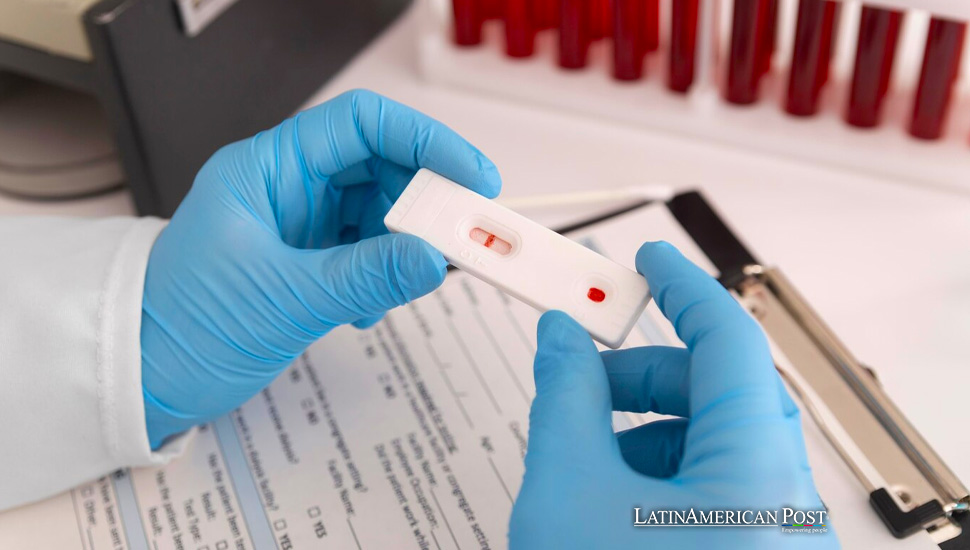México Approves Home HIV Tests, Expanding Access and Early Treatment Opportunities

Mexico’s Federal Commission for Protection against Health Risks (Cofepris) has approved home testing kits for HIV, a significant move to enhance public health. This decision enables individuals to self-administer tests using oral fluid samples or receive demonstrations from trained personnel. The initiative aims to increase diagnostic access, ensure timely treatment, and address the needs of vulnerable populations.
Breaking Ground: Mexico Approves Home HIV Testing Kits
In a landmark decision that promises to reshape public health outreach in Mexico, the Federal Commission for Protection against Health Risks (Cofepris) has given the green light to home testing kits for the Human Immunodeficiency Virus (HIV). This pivotal move, announced on Wednesday, marks a significant milestone in the country’s efforts to combat the HIV/AIDS epidemic.
The approval of these ‘self-tests’ heralds a new era in Mexico’s public health strategy, offering a practical and private way for individuals to ascertain their HIV status. The tests come in two forms: one where individuals can collect their oral fluid sample for analysis and another that includes a demonstration by trained personnel and instructions for interpreting the results.
Cofepris, in its statement, emphasized the profound impact of this advancement. By facilitating broader access to diagnostic tests, the initiative ensures timely access to treatment, a crucial step in managing HIV/AIDS effectively. This development is particularly significant considering the data from the National Center for the Prevention and Control of HIV and AIDS (Censida), which estimates that about 370,000 people live with HIV in Mexico, with three out of ten unaware of their serological status.
The sanctioning of home testing is part of a broader shift in health policy, as outlined in the Mexican Official Standard NOM-010-SSA-2023. Since mid-last year, this policy has advocated recognizing self-diagnostic tests, aligning Mexico with countries like the United States, Spain, and Colombia, where such measures are already in place.
Inclusive Approach to Public Health
The standard explicitly aims to increase access to HIV detection tests, focusing on key populations and groups in situations of inequality and vulnerability. It considers social determinants, levels of exposure, and prevalence, ensuring that the policy is inclusive and responsive to the diverse needs of the Mexican population.
However, Cofepris must clarify when these tests will be available for sale or the specific distribution points. This uncertainty highlights the challenges ahead in implementing this progressive health policy effectively.
The introduction of home HIV testing in Mexico represents a critical step towards destigmatizing the disease and encouraging more people to get tested. The privacy and convenience of self-testing could significantly reduce the barriers to diagnosis, particularly among marginalized groups who often face discrimination and social stigma.
Timely Diagnosis for Effective Treatment
Moreover, early detection of HIV is vital for effective treatment. With timely diagnosis, individuals can access antiretroviral therapies (ART) that significantly reduce the virus’s impact, improving their quality of life and reducing the likelihood of transmission. Thus, home testing could be a game-changer in curbing the spread of HIV/AIDS in Mexico.
The decision by Cofepris also reflects a growing global trend towards self-care interventions in healthcare. Self-testing aligns with the broader movement of empowering individuals in their health management in a world increasingly driven by technology and personal autonomy.
For health professionals and policymakers, the challenge now is to ensure that these tests are not only available but also accessible to all segments of the population. This includes providing adequate information and support to help individuals interpret results correctly and seek appropriate medical advice.
There’s also a need for a robust follow-up system. Those who test positive will require guidance, support, and a seamless connection to healthcare services to start treatment as soon as possible. This requires a well-coordinated effort between stakeholders, including health authorities, NGOs, and community groups.
The move to self-testing is particularly relevant in the ongoing COVID-19 pandemic. The pandemic has underscored the importance of innovative health strategies that allow individuals to take proactive steps in managing their health while reducing the burden on healthcare systems.
Challenges and Concerns
However, the introduction of home HIV tests is not without its challenges. There are concerns about the accuracy of these tests and the potential for misinterpretation of results. Addressing these concerns will require comprehensive public education campaigns and clear guidance on when and how to use these tests.
Furthermore, while self-testing increases privacy and convenience, it also raises concerns about isolating individuals who may receive a positive result. Ensuring access to emotional and psychological support, in addition to medical care, will be crucial.
In conclusion, the approval of home HIV tests by Cofepris is a forward-looking step that has the potential to transform the landscape of HIV/AIDS prevention and treatment in Mexico. By increasing accessibility to diagnosis and reducing the stigma associated with testing, Mexico sets a precedent in public health that other countries may follow.
Also read: Mexico’s ‘Patria’ Vaccine Aims for Emergency Use Approval
The world watches with interest as Mexico embarks on this new chapter in its public health story. The success of this initiative will depend on the practical implementation of the policy, comprehensive public education, and a supportive healthcare system. If done right, home HIV testing could be a significant stride toward defeating the HIV/AIDS epidemic in Mexico and beyond.





